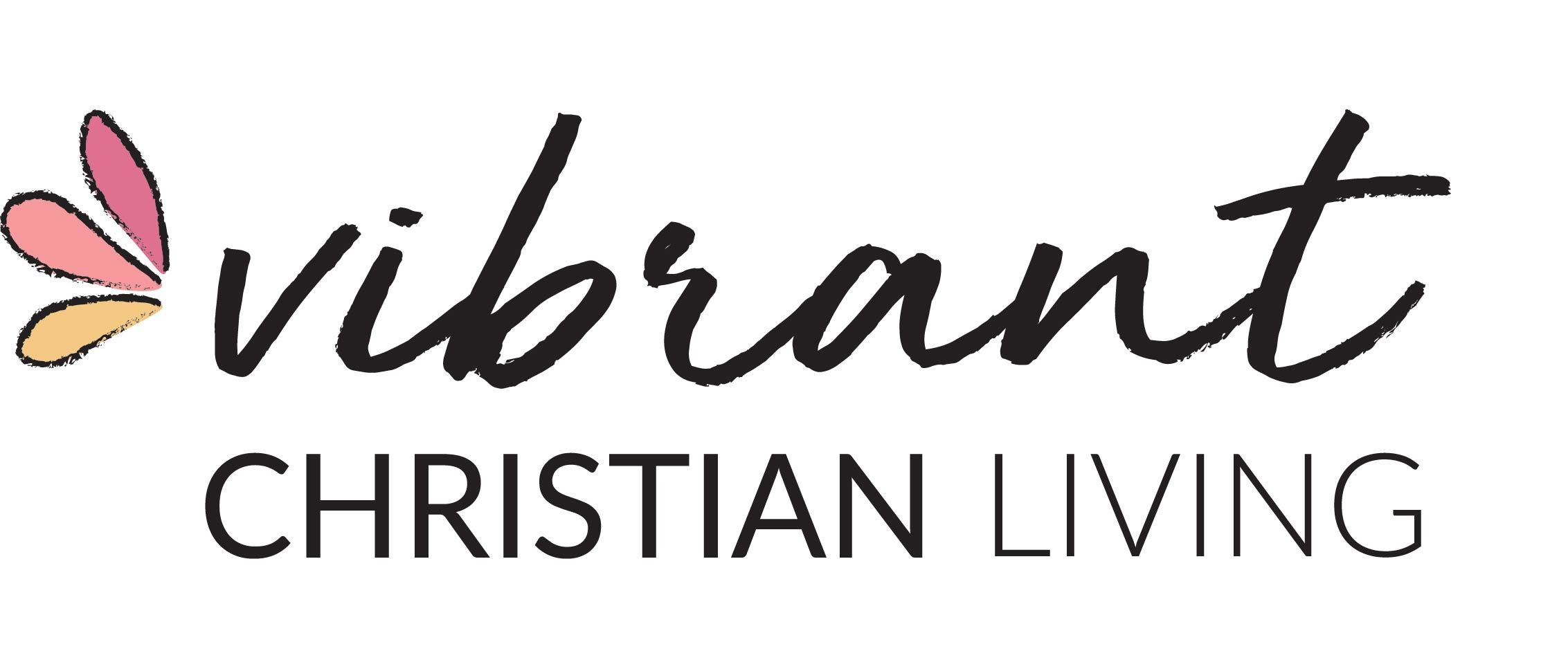How can we trust God again when we have a fear of being hurt? We want to trust God, but these deep subconscious thoughts and fears are blocking us from being able to deepen that trust with Him. When we make decisions rooted in fear it causes us to hear God’s voice less and less, which can lead to anger or frustration. We have to take control of our thoughts to understand the true perspective of what is happening.
Let’s dive deeper into the root of our fears, how they are affecting our connection with God, and how to trust when we are called to stretch our faith with Him and heal our past hurts, so that we can ultimately put our full trust in God.

WHAT YOU'LL LEARN:
- [5:20] How to Find Healing from Fear and Trust God Again
- [7:58] How Fear Can Hinder Our Ability to Trust God
- [9:12] Two Hebrew Words for Fear to Help Us Understand How to Manage Fear
- [12:37] Recognizing Our Decision Making Freedom in Christ
- [16:20] Understanding God’s Character and How That Helps Us Work Through Fears
- [24:11] Trusting God Even When We Ask “Why Did This Happen?”
- [30:40] Using the Power of Our Minds to Stay Connected with God and Trust God More
- [36:37] 3 Step Process to Let Go of Fear and Trust God When You’ve Been Hurt
[5:20] How to Find Healing from Fear and Trust God Again
A listener's comment from episode 167, stated that “…I believe in God and Jesus, but I still feel stopped or held up in my faith. I think it comes down to trusting God. I don’t think I fully let go in order to trust. I really do try to live a good and faithful life but still feel that’s not enough. But I only want change in small, non frightening increments.”
We are diving deeper into her comment on today’s episode about trusting God again after having been hurt in the past. The key word I'm pulling out is that there is a question underneath, the word “frightening”. She wants to move forward, but she is cautious because there is trust that has been broken.
When something happens to break trust in a relationship, we have to recognize that it is okay to be apprehensive about trusting again. We're trying to protect ourselves from any future pain. That’s what fear does. There are also other reasons why we get stuck in these self-sabotaging situations that are left unresolved. We avoid addressing that pain.
What’s happening here is rooted in fear. The wounding that can sometimes stop us from loving and trusting God comes directly from our relationship with Him, other areas where trust has been broken, or because we aren’t confident in our ability to hear God’s voice.
[7:58] How Fear Can Hinder Our Ability to Trust God
In Episode 106, we talked about how to hear God’s voice and there was one part I didn’t include because it deals with how our fear can get in the way of hearing from God. With the potential fear, we need to notice the fear behind the indecision. Many times we get stuck or paralyzed about making the wrong decision because we want to do right by God, but let me ask you a few questions.
- Do you fear that you'll make a mistake?
- Do you worry that you won’t get it right?
- Is there some way it’s going to get messed up? Or
- Is it that you will step out of God's will?
Is that a fear you have? These are all real human fears, and God wants to walk with us in them.
[9:12] Two Hebrew Words for Fear to Help Us Understand How to Manage Fear
If you are dealing with fear, I want to teach you about the two kinds of words for fear in the Old Testament. This information has truly changed my life in understanding the types of fear and learning how to deal with them.
The two main words that are used for fear in Hebrews in the Old Testament are “pachad” and “yirah”. Pachad is that kind of fear that’s most familiar. It is our natural human fear associated with danger. Pachad fear is like fearing getting on an airplane because it’s going to crash.
On the other hand, yirah is the fear from an awe kind of perspective. There is this knowing that something greater is about to happen and feeling like you're about to see something really big happen in your life.
We are wise to listen to pachad fears because they help us stay out of danger. Yirah fears are an invitation to trust God as we step into a new experience, for example, a new career that is going to take boldness and confidence.
[12:37] Recognizing Our Decision Making Freedom in Christ
Sometimes we get caught up in wanting to know God's will so much for our lives that we want to make sure in every situation that God blesses us or gives us the right thing. The Lord does want us to come to Him with everything, but He also gives us the freedom to make our own decisions in things that don’t require a right or wrong answer.
The kinds of decisions we are focused on are ones that aren’t rooted in moral questions, but instead, of preference. For example, if you are trying to decide between buying car A and car B, then it doesn’t matter if you want better fuel efficiency or more sporty features. These decisions do not have an ultimate right or wrong. We can ask God for advice and for Him to lead us, but there should be no worry involved as to whether or not we are stepping outside of His will. Hope is here for us and healing is always possible. God will always leave a way for us to get back to a complete part of where he wants us to be.
[16:20] Understanding God’s Character and How That Helps Us Work Through Fears
What does the Bible say about who God is? I want to share a few verses that come to mind about how the Lord is described and how this can help us trust Him more.
1 John 4:8 says, But anyone who does not love does not know God, for God is love.
If love is greater than all things, knowing that God is the author and the perfecter of love, it really helps us to know that He understands us, and that he's not just a cosmic kind of judge. He's out to bring unity, healing, and purpose out of all things. All things are knit together by his love.
Exodus 34:6-7 says, And he passed in front of Moses, proclaiming, “The Lord, the Lord, the compassionate and gracious God, slow to anger, abounding in love and faithfulness, maintaining love to thousands, and forgiving wickedness, rebellion and sin. Yet he does not leave the guilty unpunished; he punishes the children and their children for the sin of the parents to the third and fourth generation.
This is a beautiful, complete statement about who God is. We can give a short sighted answer about who God is on either extreme. For example, we can state that God is only a God of revenge and anger, and he's out to get us; or we can view Him as the God that is all about mercy without any boundaries on right or wrong. When we're handing these difficult things in our life to God and we're asking for his perspective, it’s important that we know He is a God who's going to fight for us, he's going to be the one who's on our behalf.
Psalm 103:1-14 says, Praise the Lord, my soul; all my inmost being, praise his holy name. Praise the Lord, my soul, and forget not all his benefits—who forgives all your sins and heals all your diseases, who redeems your life from the pit and crowns you with love and compassion, who satisfies your desires with good things so that your youth is renewed like the eagle’s. The Lord works righteousness and justice for all the oppressed. He made known his ways to Moses, his deeds to the people of Israel: The Lord is compassionate and gracious, slow to anger, abounding in love. He will not always accuse, nor will he harbor his anger forever; he does not treat us as our sins deserve or repay us according to our iniquities. For as high as the heavens are above the earth, so great is his love for those who fear him; as far as the east is from the west, so far has he removed our transgressions from us. As a father has compassion on his children, so the Lord has compassion on those who fear him; for he knows how we are formed, he remembers that we are dust.
God does so much for us. That is what David is saying in these verses and that we should praise Him for all of these blessings, love, and forgiveness He gives to us.
Isaiah 40:10-11 says, Yes, the Sovereign Lord is coming in power. He will rule with a powerful arm. See, he brings his reward with him as he comes. He will feed his flock like a shepherd. He will carry the lambs in his arms, holding them close to his heart. He will gently lead the mother sheep with their young.
When I began thinking about who God is, if I was to try to learn about him, these were some of the characteristics that came to me. A wonderful way to learn about God’s character is for you to look up other verses around the words love, compassion, justice, or whatever you feel in terms of trust with God.
Now, if you feel like there has been this breach of trust in the past, by an authority figure by someone in the church, specifically, or just even in the church in general, it’s important to clearly identify those things that have happened and link them to why it feels hard to trust God, why there's that block in your mind when it comes to being able to hear Him and to trust Him, and to surrender to Him. When you really get them sorted out, ask other people that you can trust, and if you're comfortable, ask God to help you understand more about what that's about and find healing in those areas where you've been hurt. I would also encourage you to look back on your life and try to separate out how you've seen evidence of how the Bible describes God in these ways of being a loving Father.
[24:11] Trusting God Even When We Ask “Why Did This Happen?”
Another big reason as to why it can be hard to trust God is when we ask, “why did this happen to me?” We may be scared of what is ahead because of what God has allowed before, but again, it is understandable that it is scary. We truly cannot understand why God allows certain things, and doesn't allow others. We also have to recognize that God is in control of all things and is the ultimate authority when things happen in this world.
Nevertheless, there is this balance of free will and man's ability to choose and not to choose. When man chooses evil, it can have a ripple effect and hurt others in its path. There are honestly all kinds of forces that work against us. Although God is still in control, there is still room for free will. Sometimes we just won’t know the reasons why we don’t know.
That being said, we do know certain things to be true about God. We do know that God is the ultimate authority on all things. All things have to go through Him. We see a perfect example of this in the book of Job, when God uses all things for good. We see time and time again, that through trials and tribulations on Earth, God had cared for and loved His people. He is the same as yesterday, today, and forever. All things are going to work according to the Lord’s purpose. It doesn't mean all things are going to be made right and figured out today, but it just says that he has the ability to weave all of our experiences together as individuals, as a society and culture to create the best outcome for everyone involved, even if that may not be right now.
Hard things are not necessarily bad things. They actually have purpose, like the story in Romans 5:3-3 about us being able to rejoice, too, in the trials we face because it develops our endurance. Endurance develops strength of character, character strengthens our confident hope of salvation. When we stand on the truths that we know about God, we have to turn our minds to the fact that this is happening for me, not against me. There is a bigger purpose than what we can see now.
[30:40] Using the Power of Our Minds to Stay Connected with God and Trust God More
We have to use the power of our mind, to allow us to stay connected to him and to lean into that trust with Him. There may be something we need to go through in order for God to prepare us for the next level of trust. It is natural for us to wonder what will become a situation, but we have to look beyond that and trust God for what is there.
In Psalm 43:5, we see that it’s important for us to shift our mindset to view the bigger picture of who He is and how He is carrying us through the situation. If our trust is being threatened, we have to find ways to find healing for that. There were times where my husband got laid off from work, in 2016 and recently during Covid, that as a family we had to really deepen our trust with God and lean on Him. It was a season of endurance for us, but through manna trust, we were able to grow with God through that season.
[36:37] 3 Step Process to Let Go of Fear and Trust God When You’ve Been Hurt
There's always a season of a deepening of trust where God is calling us “further up and further in” to His presence. We can’t ever expect ourselves to perfectly trust God since there are scary things in this world that can cause fear. Yet we have the gift of knowing that trust is our provision to step forward and grow spiritually.
If we can view our fears and leaning into God–as a stretching of our faith in our spiritual walk with the Lord–we can see the gift of trials. I'm always encouraged by the fact that when Jesus talks about worry, and fear, he doesn't talk about it from the perspective of “you'll never struggle with worry or fear” or “you don't have a reason to have worry or fear.” Jesus says that’s understandable why we’re going to struggle with fear and trust, and says “let me show you how to deal with it from a way to release it to me.”
From a practical standpoint, I want to give you a three step process that I use to help let go of fear and trust God when you’ve been hurt or things are scary. I've shared it several times before about how to manage our perspective and our emotions when we're going through something challenging and it definitely relates to being able to trust God.
It’s called “ADD.” “A” helps us to acknowledge what we're feeling is real. Next, we are going to determine (“D”) what is the truth and what is not the truth about the situation. Then, we're going to decide (“D”) how we are going to respond to what's going on.
That's where the Christian Mindset Makeover comes in. We learn more about these deep, subconscious thoughts that may be creating mental blocks like being able to trust God, being able to have confidence in our own decisions, being able to even hear the voice of God. We discover how buried anger and frustration are manifesting in self-destructive behaviors like perfectionism and people pleasing. We start by cultivating a compassionate loving perspective of why it's happening, and getting to the root of what we’re feeling. We use brain science (specifically a process called “brain priming) so that we can heal the hurts by change the subconscious thought patterns. It’s truly life changing when we can rewrite our core foundational thoughts to be in line with the promises of God.
The Christian Mindset Makeover is a hybrid program that provides both on-demand and live components. You can go through the modules in your own time, we work together on the brain priming, and then there are live calls twice a month. Along with the 9 teaching modules and homework, we also have a Facebook group and a Bible study. The material is all created based on my years of working with women around issues of perfectionism, anxiety, comparison, people-pleasing, and workaholism. We use brain science to help us align with God.
In the next episode we’ll be moving into an awesome new series on anxiety. The words Pachad and Yirah mentioned today will be a great lead in for what we're gonna be talking about on anxiety dealing with fear. What do we do with these racing thoughts and worries that come up? I can’t want to share with you more in our next podcast episode!
OTHER PODCAST EPISODES ON TRUSTING GOD:
- 64: When You Doubt Your Faith and Have Questions About God with Robin Dance
- 118: Finding Answers to Our Questions About God with Brittany Ann
- 132: Mindset Coaching: “How Can I Let Go of Past Hurts to Feel Safe in New Relationships?” with Susan
- 142: How My Battle with Depression Helps Me Grow Closer to God with Amber Cullum
- 165: How to Pray Confidently and Consistently for More Connection with God with Valerie Woerner
FREE WORKSHOP: Learn How to Transform Your Thoughts to Transform Your Life
Do you find it hard to let go of worry? Struggle with feeling you’re never enough? Or maybe you’re frustrated because you can’t make the changes you want in your life (lose the weight, start new habits or grow in a certain area)? Both brain science AND scripture show that every action we take starts first with a thought. If we change our thoughts, we can change our results. That’s why I want to give you the inside scoop on the most effective ways to change our thoughts at this FREE WORKSHOP! Sign up now at VibrantChristianLiving.com/mind  At this FREE WORKSHOP you’ll learn:
At this FREE WORKSHOP you’ll learn:
- Why it makes sense you’re stuck in toxic thought patterns
- The truth behind 3 popular myths on how to overcome negative thoughts
- A simple 3-step strategy to manage negative thoughts in-the-moment (this powerful tool alone is worth coming!)
Plus you’ll get an inside look at the Christian Mindset Makeover™–the only course that equips Christian women with powerful brain-science + biblically based tools to break free from negative thoughts—in only 9 weeks! Go now to VibrantChristianLiving.com/mind right now to sign up for this amazing FREE WORKSHOP to learn how to transform your thoughts to transform your life. REGISTER FOR THE FREE WORKSHOP

